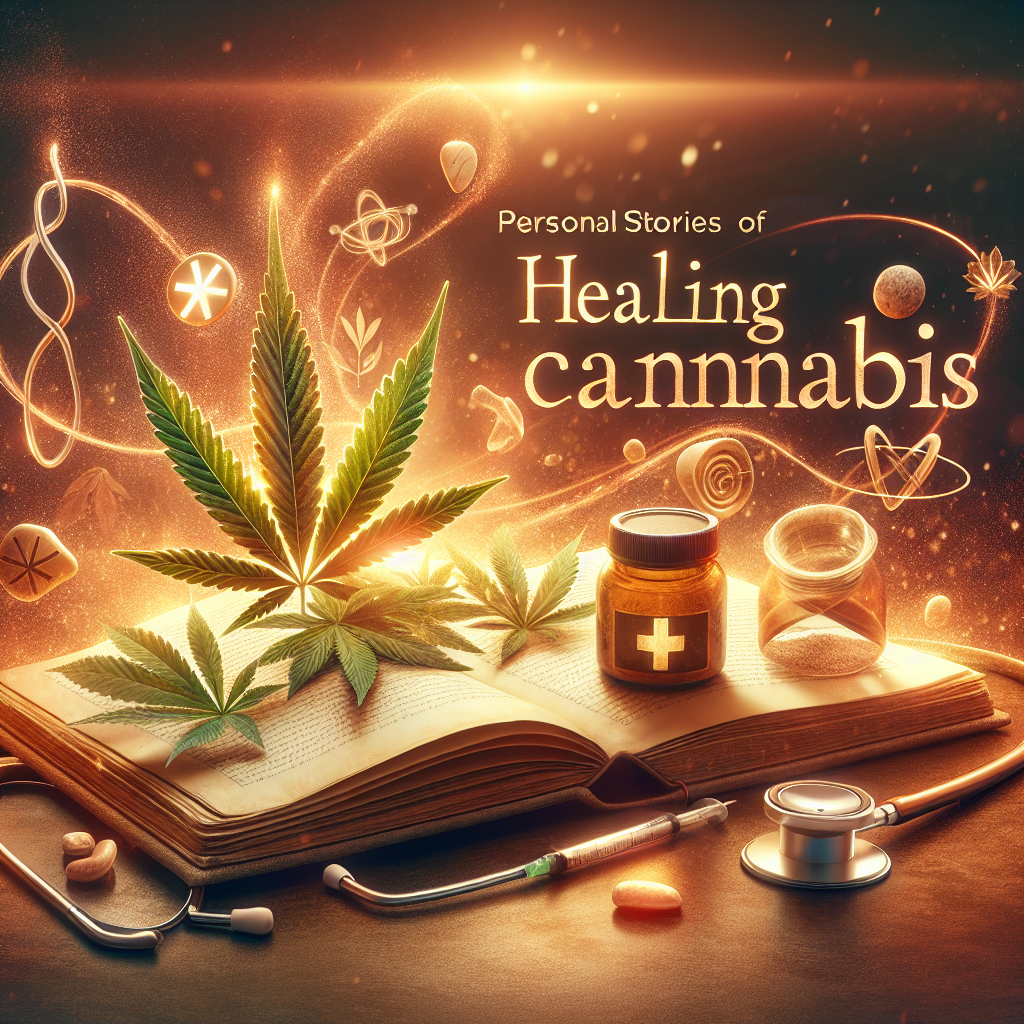Personal Stories of Healing Through Medical Cannabis
The landscape of medical cannabis in the United States has undergone a radical transformation over the last two decades. From a controversial and stigmatized substance to a recognized form of treatment for various ailments, personal stories of healing through medical cannabis have emerged as powerful narratives that challenge traditional medical paradigms. As more states legalize medical cannabis and research into its benefits expands, the stories of individuals who have found relief through cannabis serve as both inspiration and evidence of its potential.
The Rise of Medical Cannabis
Since California first legalized medical cannabis in 1996, numerous states have followed suit, creating a patchwork of laws that reflect a growing acceptance of this alternative therapy. As of now, over 36 states have implemented medical cannabis programs, significantly broadening access to patients suffering from various conditions such as chronic pain, epilepsy, and anxiety. This shift reflects not only a change in legal status but also in societal perception, with increasing numbers of healthcare professionals advocating for its use. Yet, despite the growing acceptance, misconceptions persist, often overshadowing the personal narratives that demonstrate the healing potential of this plant.
Stories of Healing: From Chronic Pain to Epilepsy
Take, for instance, the story of Lisa, a 34-year-old woman from Arizona. After enduring years of debilitating migraines and failed pharmaceutical interventions, she turned to medical cannabis as a last resort. “I was skeptical at first,” Lisa admits, “but I was desperate for relief.” With guidance from her physician, she began using a regimen that included both CBD and THC oils. Within weeks, Lisa experienced a significant reduction in the frequency and severity of her migraines. Her story is not unique; many individuals have reported similar successes in utilizing cannabis as an effective tool for managing chronic pain.
Similarly, medical cannabis has gained attention in treating pediatric epilepsy, particularly in cases resistant to traditional medications. In recent years, the story of Charlotte Figi, whose battle with Dravet syndrome captured national attention, brought further awareness to cannabis’s potential. Charlotte’s condition was life-threatening, with seizures occurring multiple times a day. After her parents discovered high-CBD cannabis oil, they saw a transformation in her health, reducing her seizures to just a few per month. Charlotte’s story spurred legislative efforts across the country, showcasing how personal narratives can influence policy and change lives simultaneously.
A Call for Research and Understanding
These personal stories, while poignant, also underline a significant need for rigorous scientific research into the effectiveness and safety of medical cannabis. Many advocates argue that the patchwork legalization of cannabis complicates these efforts. The federal classification of cannabis as a Schedule I substance has long hindered research opportunities, but there are signs of progress. In recent months, the National Institutes of Health (NIH) has indicated a shift in approach, with increased funding for studies examining cannabis’s therapeutic effects. Experts believe that more research will formalize anecdotal evidence and help integrate cannabis into mainstream medical practices.
Dr. Ethan Russo, a well-respected neurologist and cannabis researcher, emphasizes that it’s crucial to approach cannabis with an understanding of its complexities. “Cannabis is not a one-size-fits-all solution,” he asserts. “But for many, it offers an alternative to traditional treatments that often come with harsh side effects.” By increasing awareness and understanding, medical practitioners can better guide patients in exploring cannabis as a treatment option tailored to their unique conditions and needs.
The Role of Patient Advocacy
Another integral component of the expanding narrative around medical cannabis is the rise of patient advocacy groups. Organizations such as the Epilepsy Foundation and the National Organization for the Reform of Marijuana Laws (NORML) have been pivotal in educating the public and lawmakers about the medicinal benefits of cannabis. They provide platforms for patients to share their stories, raising awareness about the effectiveness of medical cannabis in treating various conditions.
The advocacy movement has also played a significant role in shaping legislation. For example, the recent passing of the Medical Cannabis Expansion Bill in West Virginia, which permits cannabis use for conditions like Parkinson’s disease and multiple sclerosis, was driven by passionate advocates sharing their personal stories of healing. These shared experiences humanize the issue, making it more relatable to lawmakers and the public alike.
Challenges and Future Perspectives
Despite the progress made, patients still face challenges in accessing medical cannabis. Barriers such as high costs, inconsistent quality, and lack of insurance coverage persist, preventing many from experiencing its benefits. Furthermore, misinformation continues to cloud the dialogue around cannabis, leaving some patients hesitant to explore this treatment option.
As public opinion gradually shifts and more data emerges, the future of medical cannabis in the United States looks promising. Policymakers are beginning to recognize the therapeutic potential of this plant, and as more studies validate personal stories of healing, a more standardized approach to cannabis treatment may be on the horizon.
Conclusion: A Journey of Healing and Hope
The personal stories of individuals like Lisa and Charlotte weave a rich tapestry of hope and resilience in the ongoing narrative of medical cannabis. They remind us that beneath the statistics and research lies a very human element—individuals seeking relief and healing from unimaginable pain. As societal acceptance grows and research expands, the medical cannabis narrative will likely evolve, offering not only health benefits but also a deeper understanding of the complex relationship between people and this ancient plant. In reflecting on these journeys, we are called to consider the importance of compassionate, informed healthcare options that honor personal experiences, paving the way for a future where healing is accessible to all.
Source: https://www.nugmag.com/personal-stories-of-healing-through-medical-cannabis/

